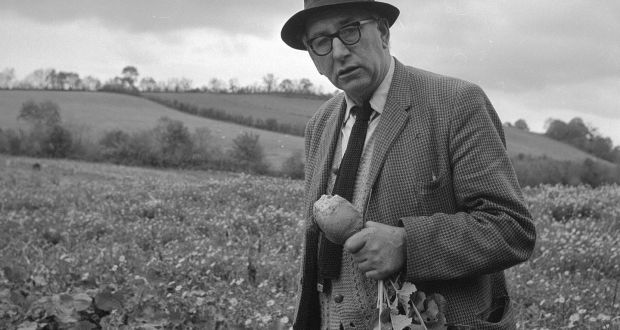The Wrong Country: Essays on Modern Irish Writing
by Gerald Dawe (Irish Academic Press, €22.95)
Derek Hand
Gerald Dawe’s collection of essays offers a very engaging assessment of Irish writing in the last 100 years. His survey of the scene, filtered through the lens of his being a lecturer and poet, brings enthusiasm to the task, making unexpected links between well-known writers, while also importantly bringing to light those artists from the past who have fallen between the cracks of literary history.
Any reader with a passing interest in Irish writing will find much to savour here. Informative introductions to writers and their work give a solid grounding in which to understand their various achievements.
The title of his collection, The Wrong Country, gives expression to Dawe’s underlining anxiety about the contexts in which Irish writing has emerged, the psychological pressures of invisible borders and landscapes, both real and imagined, ravaged by the reality of political violence.
Ireland’s history has always demanded a response from its artists, and artists have continually met that challenge and responded in their own inimitable ways.
Again and again, Dawe makes clear that the work of art is a place where in all uncertainties and conflicts and questions can come creatively together, and if not be definitively answered, then simply given articulation. This in itself, in Dawe’s estimation, is vitally important.
Readers get a very concrete sense of the nature of the writing under scrutiny: its themes and concerns and stylistic flourishes. The often employed method of comparison means that as in the case of contemporaries Derek Mahon and Seamus Deane, a diversity of perspectives to the same historical moment and its predicaments is presented allowing a fuller understanding of the writing to materialise.
Voice
The same is true of Dawe’s reading of Eavan Boland and Eiléan Ní Chuilleanáin’s poetry as each is shown to creatively give voice to questions about politics and identity and gender. An essay on John McGahern suggests how poetry was fundamental to his prose aesthetic and how poetry often plays a central part in some of his work.
Stewart Parker is presented as a critical voice on the north of Ireland’s divisions and violent diversions: his wit and his commitment to a social realism, evidence of a desire to complicate straightforward sectarian interpretations of The Troubles.
The essay on the 1950s generation of writers is revealing in its focus on writers such as Patrick Kavanagh and Brendan Behan. Dawe sympathetically exposes the tension between the demands of the public persona and the requirements of the artist who must struggle to be loyal to the demands of their art.
Acts of recovery conjure up names such as Ethna Carberry, Joseph Campbell and George Reavey, and in the process deepen our knowledge of the various types of writing linked to the ‘story Ireland’.
The revelation that iconic hunger striker Bobby Sands was a keen admirer of Carberry’s nationalist poetry, even though it was imbued with the heightened emotions, stylisations and language of the 19th Century, makes clear the kind of strange cultural, historical and literary world that Ireland often inhabits. Indeed, the north of Ireland haunts Dawe’s critical imagination: the nuance of class and allegiance emerge from the pages here, as does a profound mourning for a pre-troubles world that has disappeared.
This is very much a personal journey undertaken by Dawe. He ranges where he likes and where he thinks an interesting idea or moment might lie, waiting to be illuminated. And they are illuminated.
As a poet himself he brings an attention to language and detail that sheds light on the work of each of the writer’s discussed. His essay on the upsurge of ‘creative writing’ courses in Ireland is timely in this context. He acknowledges their worth, but also rightly raises questions about the long-term consequences of this professionalisation and institutionalisation of art.
Perhaps what really matters to Gerald Dawe, and what draws him to his chosen writers is the sense that knowledge – and particularly the knowledge that writing might give expression to – does not come dropping slow, but it is rather hard won.
It is that struggle toward some sense of enlightenment that is on display in Dawe’s take on Irish writing over the last 100 years.
Dr Derek Hand is head of the School of English at DCU.


 Patrick Kavanagh among the potato fields of his native Monaghan
Patrick Kavanagh among the potato fields of his native Monaghan 
